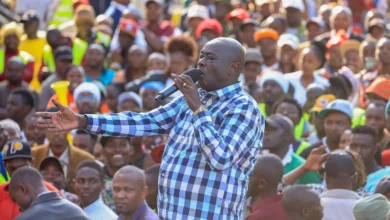August: A Month of Profound Significance in History

The Dual Nature of August
August stands as a month of striking contrasts—a time when humanity has witnessed both remarkable beginnings and tragic endings. Named in honor of the Roman Emperor Augustus, this eighth month of the year carries an undeniable historical weight. From political revolutions and scientific breakthroughs to devastating wars and cultural milestones, August has repeatedly served as the backdrop for events that shaped nations and altered the course of history.
The Romans themselves set the tone for August’s significance when they adjusted its length from 30 to 31 days, ensuring it would rival July (named after Julius Caesar) in importance. This calendrical change, while seemingly administrative, symbolizes the human desire to leave a lasting mark on time itself. As we examine key events that have occurred throughout August, we find a recurring theme: this is a month when the wheels of history turn decisively, for better or worse.
Kenya’s August Chronicles: Turning Points in a Nation’s Journey
The Passing of a Founding Father (August 22, 1978
Kenya’s modern history was forever changed on August 22, 1978, when the nation’s first president, Mzee Jomo Kenyatta, drew his last breath in Mombasa. His death marked the end of an era—the transition from Kenya’s founding leadership to a new generation. Kenyatta had led the country through its early years of independence, navigating the complex challenges of nation-building. His declining health in the preceding years, marked by periodic comas and a massive heart attack in 1977, had foreshadowed this momentous transition. The nation held its breath as power transferred to his successor, Daniel arap Moi, beginning a new chapter in Kenya’s political evolution.
The 1982 Coup Attempt (August 1, 1982)
In the early hours of August 1, 1982, Kenya experienced its most serious political upheaval since independence. Members of the Kenya Air Force launched a brazen coup attempt, seizing control of key installations including the Voice of Kenya broadcasting station. For several tense hours, citizens listened to martial music interspersed with announcements of a new military government. However, the coup was ultimately crushed by loyalist forces, resulting in 12 executions and over 900 imprisonments. This event exposed underlying tensions in Kenyan society and led to significant changes in the country’s security apparatus. The failed coup remains etched in national memory as a stark reminder of the fragility of political stability.
A New Constitutional Dawn (August 4, 2010)
August 4, 2010, stands as one of Kenya’s most transformative days. After decades of struggle and two previous failed attempts, Kenyans finally ratified a new constitution with 67% approval. The document represented a fundamental restructuring of governance, introducing checks on presidential power, devolution of authority to counties, and enhanced protections for human rights. The peaceful referendum was particularly significant coming just two years after the violent 2007-2008 post-election crisis. Observers noted the irony that this progressive constitution was signed in August—the same month that had witnessed some of Kenya’s darkest moments.
Tragedies That Shook the Nation
August has also been a month of profound loss for Kenya. On August 14, 1990, the nation mourned Bishop Alexander Muge, a fearless Anglican cleric who died in a suspicious road accident shortly after defying government warnings not to visit Busia. Exactly two years later, on August 14, 1992, veteran politician Masinde Muliro collapsed and died at Nairobi Airport under mysterious circumstances, just as multi-party politics was being restored.
The month’s grim tally continued with the murder of Fr. John Kaiser on August 23, 2000. The outspoken Catholic priest was found shot dead days before he was to present crucial evidence about politically-instigated violence. His death, like others in August, raised troubling questions about power and accountability in Kenya.
Violence and Terrorism
August has repeatedly witnessed horrific violence in Kenya. The 1997 Likoni attacks (August 13) saw coordinated raids leave 42 dead, while the August 7, 1998 U.S. Embassy bombings claimed 223 lives in Nairobi alone. These events exposed Kenya’s vulnerability to both internal conflicts and international terrorism, shaping the country’s security policies for decades.
Global August: Events That Reshaped the World
Scientific Milestones
August boasts remarkable scientific achievements. Joseph Priestley’s isolation of oxygen on August 1, 1774, revolutionized chemistry, while the atomic bombings of Hiroshima (August 6, 1945) and Nagasaki (August 9, 1945) demonstrated science’s destructive potential, ultimately ending World War II but ushering in the nuclear age.
Political Transformations
The month has witnessed pivotal political moments:
– Richard Nixon’s resignation (August 8, 1974) over Watergate
– Barack Obama’s birth (August 4, 1961), who would become America’s first Black president
– The fall of the Roman Empire (August 28, 476)
– Martin Luther King Jr.’s “I Have a Dream” speech (August 28, 1963)
Cultural Icons
August marks both the birth (August 26, 1910) of Mother Teresa, symbolizing compassion, and the death (August 31, 1997) of Princess Diana, the “People’s Princess” whose funeral captivated the world.
Conclusion: August’s Enduring Legacy
This examination reveals August as a month when history accelerates—when revolutions are born, empires fall, and human courage faces its greatest tests. The concentration of significant events suggests more than coincidence; it reveals how human affairs often reach climaxes as summer wanes.
As Psalm 90:12 implores: “Teach us to number our days, that we may gain a heart of wisdom.” August’s events collectively remind us of time’s preciousness and our responsibility to shape history positively.





